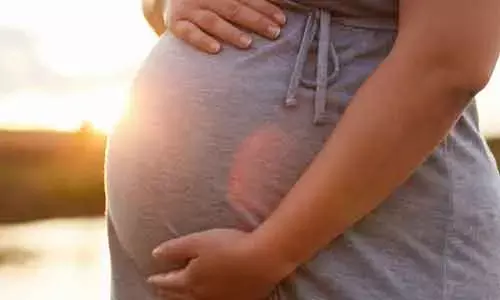- Home
- Medical news & Guidelines
- Anesthesiology
- Cardiology and CTVS
- Critical Care
- Dentistry
- Dermatology
- Diabetes and Endocrinology
- ENT
- Gastroenterology
- Medicine
- Nephrology
- Neurology
- Obstretics-Gynaecology
- Oncology
- Ophthalmology
- Orthopaedics
- Pediatrics-Neonatology
- Psychiatry
- Pulmonology
- Radiology
- Surgery
- Urology
- Laboratory Medicine
- Diet
- Nursing
- Paramedical
- Physiotherapy
- Health news
- Fact Check
- Bone Health Fact Check
- Brain Health Fact Check
- Cancer Related Fact Check
- Child Care Fact Check
- Dental and oral health fact check
- Diabetes and metabolic health fact check
- Diet and Nutrition Fact Check
- Eye and ENT Care Fact Check
- Fitness fact check
- Gut health fact check
- Heart health fact check
- Kidney health fact check
- Medical education fact check
- Men's health fact check
- Respiratory fact check
- Skin and hair care fact check
- Vaccine and Immunization fact check
- Women's health fact check
- AYUSH
- State News
- Andaman and Nicobar Islands
- Andhra Pradesh
- Arunachal Pradesh
- Assam
- Bihar
- Chandigarh
- Chattisgarh
- Dadra and Nagar Haveli
- Daman and Diu
- Delhi
- Goa
- Gujarat
- Haryana
- Himachal Pradesh
- Jammu & Kashmir
- Jharkhand
- Karnataka
- Kerala
- Ladakh
- Lakshadweep
- Madhya Pradesh
- Maharashtra
- Manipur
- Meghalaya
- Mizoram
- Nagaland
- Odisha
- Puducherry
- Punjab
- Rajasthan
- Sikkim
- Tamil Nadu
- Telangana
- Tripura
- Uttar Pradesh
- Uttrakhand
- West Bengal
- Medical Education
- Industry
High blood sugar during pregnancy increases fasting glucose in kids: Study

USA: Children born to women having higher blood sugar during pregnancy had lower insulin sensitivity and higher fasting glucose by early childhood (4-7 years of age), finds a recent study. According to the study, published in the journal Diabetologia, these relationships were not affected by the child's own adiposity.
Ellen C. Francis, University of Colorado Denver Anschutz Medical Campus, Aurora, CO, USA, and colleagues aimed to investigate the association of maternal HbA1c during mid-pregnancy with biomarkers of glucose–insulin homeostasis during early childhood (4–7 years of age). They also assessed whether and how offspring adiposity at birth and at age 4–7 years mediates this relationship among 345 mother–child pairs in the Healthy Start Study.
Maternal HbA1c (mmol/mol) was measured at 20–34 gestational weeks and categorised into tertiles. The outcomes included offspring fasting glucose, 1/insulin, HOMA2-IR, and HOMA2-B at age 4–7 years.
The mediators were per cent fat mass (%FM) at birth, %FM at age 4–7 years, and the sum of the two as a metric of cumulative adiposity. Mediation analyses were conducted via a counterfactual-based approach. All models accounted for maternal race/ethnicity, offspring age and sex.
Key findings of the study include:
- There was a significant total effect of maternal HbA1c on offspring glucose and 1/insulin.
- There was a positive trend across tertiles of HbA1c and offspring glucose, and an inverse trend across tertiles of HbA1c and offspring 1/insulin.
- For instance, compared with offspring of women in the lowest tertile of HbA1c, those whose mothers were in the second and third tertiles had 0.04 mmol/l and 0.17 mmol/l higher fasting glucose concentrations at age 4–7 years, respectively.
- Adjustment for pre-pregnancy BMI did not appreciably change the results.
- There was no evidence of mediation by offspring adiposity at any life stage.
"Our findings demonstrate that offspring of women with higher HbA1c during pregnancy had higher fasting glucose and lower insulin sensitivity by early childhood. These relationships were largely unaffected by the child's own adiposity," wrote the reearchers. "These efforts will improve understanding of how maternal hyperglycaemia affects offspring glucose–insulin homeostasis, and whether there are critical time points during which interventions can reroute risk trajectories."
The study, "Maternal blood glucose level and offspring glucose–insulin homeostasis: what is the role of offspring adiposity?," is study in the journal Diabetologia.
Dr Kamal Kant Kohli-MBBS, DTCD- a chest specialist with more than 30 years of practice and a flair for writing clinical articles, Dr Kamal Kant Kohli joined Medical Dialogues as a Chief Editor of Medical News. Besides writing articles, as an editor, he proofreads and verifies all the medical content published on Medical Dialogues including those coming from journals, studies,medical conferences,guidelines etc. Email: drkohli@medicaldialogues.in. Contact no. 011-43720751


